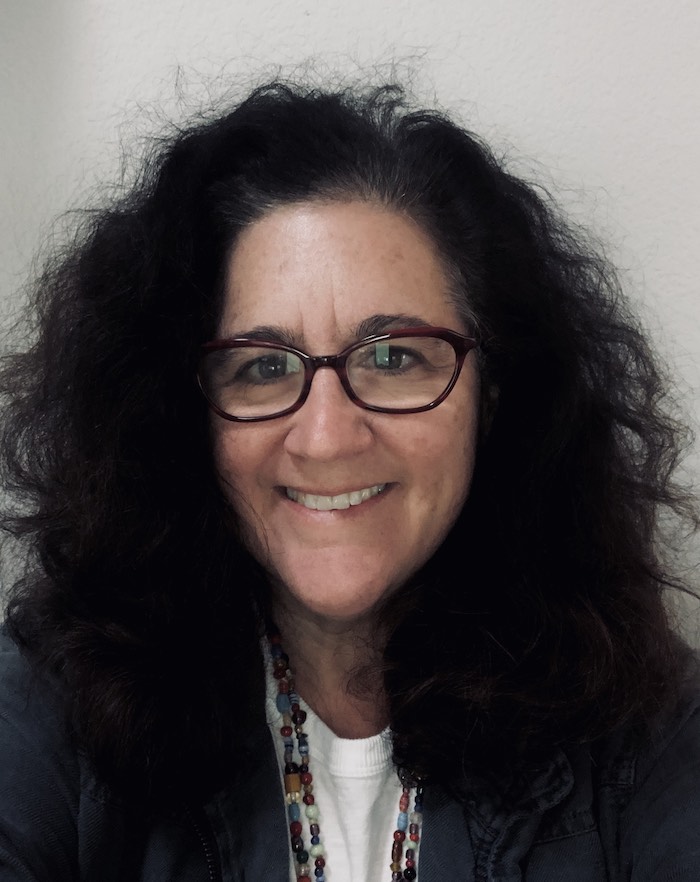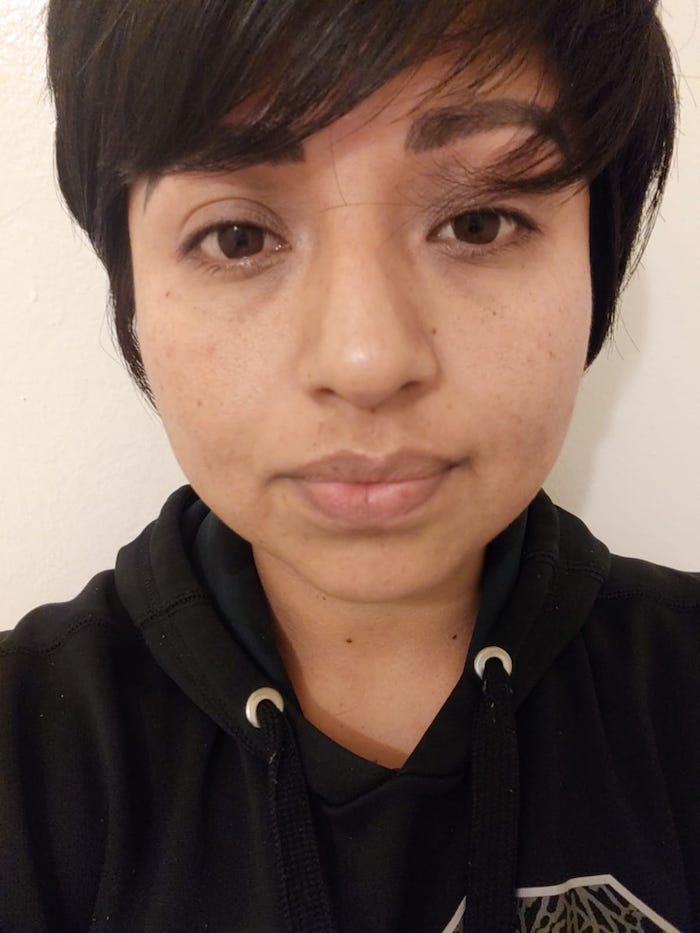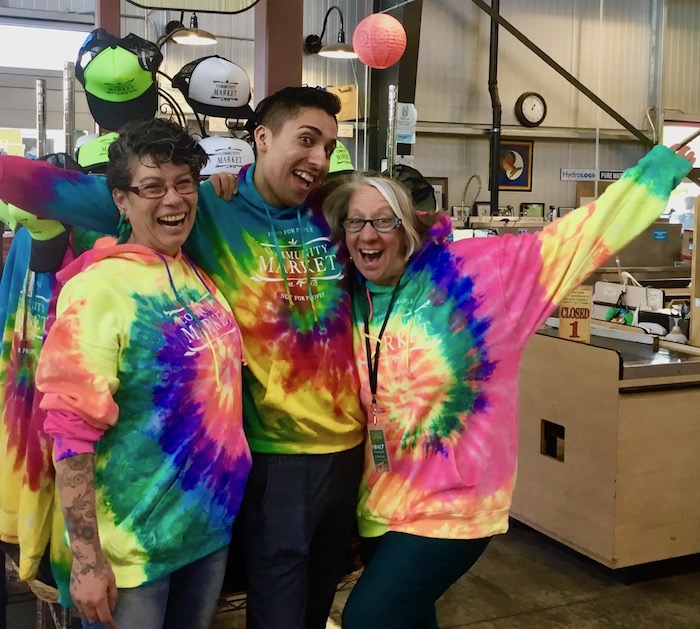
Name: Laura Hinerfeld
Occupation: Registered Nurse
Workplace: Sutter Santa Rosa, ICU
What has and hasn’t changed about your workday?
So much has changed! Just walking in is different. We have our temperatures monitored as we come in. We are handed a mask to wear for our shift. We have nurses from other departments cross-training with us because we have so few scheduled surgeries. We are continuously preparing for “the Surge” of COVID-19 patients anticipated to be admitted. Lots of new policies, then tweaks to those policies, then more tweaks. Lots of anxiety about whether we will be truly safe in the event that we see the kind of explosion in severe illness that has happened in NY and around the world.
Lots of us have described the current atmosphere as “the calm before the storm” or “eerily quiet.” There are no visitors, no elective surgeries, no nursing students. We spend a lot of time putting on and taking off protective gear to care for our patients. A lot of time talking about the mechanics or logistics of tasks that were previously pretty second nature. We see our administrators more often.
What has not changed is our sense of teamwork, dedication to patient care, and desire to know as much as possible about this disease and how to treat it. Nurses are naturally problem solvers. That hasn’t changed. There is so much open exchange of information. We have always had a very collegial and cooperative workplace. We (nurses) are trying to balance being flexible and still making sure we are providing the best patient care and advocating strongly for our own safety and the safety of everyone we work with. It’s a relief to work with the team I do: competent, compassionate, courageous. We are definitely working together.
How are you coping with this “new normal” in your work life?
Snacks and naps? And trying to stay as informed as possible (or obsessively checking the news cycle). The anxiety and rapidly changing circumstances are exhausting. Like so many others, I am also sheltering in place, parenting kids out of school, in school myself. I am tired and stressed on my days off. I nap sometimes. I am definitely not a model of healthy coping. It’s really great to see our “wins.” Hearing back from patients about how we helped is really motivating. Reading the Press Democrat article about Carlos Basurto was so uplifting. Those wins are really going to get us through a tough period. I am grateful to community members who have not only donated protective equipment but also encouragement. The flowers, cards, drawings, snacks, drinks, texts… we appreciate all of it. Thank you.
Also, I’ve been baking a lot.
What single thing would be most helpful right now?
Besides taking away the president’s ability to tweet medical misinformation, I don’t know that there is a single thing. Everyone staying home. Being able to practice safe nursing based on the best evidence rather than on conserving scarce supplies.
If there’s a silver lining, what is it?
We will be better prepared to handle the next pandemic.
When this is all over, I plan to…
1) Cheer for my kids’ Little League teams
2) Take my dogs to the dog park
3) Go back East to see my family, and take a real vacation near a beach or a lake.

Name: Deysi Lopez
Occupation: Housecleaner/Domestic Worker
Workplace: Various private homes
Editor’s Note: Lopez is one of over 300,000 domestic workers—working as housekeepers, nannies, and caregivers in private homes in California—who have been categorically excluded from basic health and safety protections provided by CAL/OSHA, the Occupational Safety Health Act. Given the COVID-19 pandemic, this exclusion has only exacerbated the risks that these workers face on a daily basis, especially as some of them continue to work on the frontlines of the health crisis with the very people who are most vulnerable to the illness, often without adequate protective equipment or training. During this crisis, as was also true during the devastating California wildfires, domestic workers have had to make the impossible choice between working in unsafe conditions or losing their income.
California Domestic Workers Coalitions is working with its allies to pass SB 1257, The Health and Safety for All Workers Act. SB 1257 would remove the exclusion of domestic workers from CAL/OSHA, so that domestic workers can have the same legal right as other workers to health and safety training and to be protected against retaliation when they advocate for their own health and safety at work.
As a member of ALMAS (Alianza de Mujeres Activas y Solidarias, or in English, the Women’s Action and Solidarity Alliance), the domestic worker organizing project of Centro Laboral de Graton, Lopez is still participating in virtual press conferences and meetings in order to keep up this crucial advocacy work.
What has and hasn’t changed about your workday?
My work completely stopped. I haven’t been earning in order to pay rent, food, and to send money back home to my family. I’m able to survive, but I can’t buy meat and fruit. Everything has changed, including my routine. I feel stress and anxiety because I haven’t worked due to the crisis. And I feel that other people are suffering from stress.
How are you coping with this “new normal” in your work life?
What has helped is staying active, exercising, tending to my house. I go out to jog. I have a friend who helps me by sharing food. What also helps me is participating in the video calls of ALMAS. Seeing the other women gives me hope. It makes me happy to see how our community has unified. I have hope that others are supporting one another. My family also makes me feel loved, which makes me feel better. For example, my dad called me the other day. My mom and my sister call on other days.
What single thing would be most helpful right now?
Everyone is worried about not paying rent. Finding work I could do at home, or assistance in order to pay rent would help me.
If there’s a silver lining, what is it?
The solidarity we’ve expressed within our group is good. There are many volunteers who care about us and make it possible for us to find food. I’m practicing my patience, calm, and solidarity, especially among the women. I’m also practicing my willingness to obey rules, like staying home.

Name: Angela “Minkoff’ Timpe
Occupation: Floor Manager
Workplace: Community Market
What has and hasn’t changed about your workday?
Changed: Everything!!! Increased responsibilities in regulating and informing customers and co-workers of new ways to be and stay healthy. Being conscientious of distance, of everything I touch or is touched, safety risks. Cleaning has become the new rave! Yet, no one can deny the increase of stress and anxiety by the end of a work day.
Hasn’t changed: Our work ethics, our commitment to the care, needs and safety of our customers, co-workers and community.
How are you coping with this “new normal” in your work life?
Taking breaks more seriously—self-care is essential—and embracing any moments of spontaneous laughter and comedy between customers and co-workers! Our customers have openly expressed their highest appreciation for all the hard work and attention to disinfecting work and shopping areas. Thank you to Community Market for providing all of us (customers and workers) gloves to wear.
What single thing would be most helpful right now?
Compassion and patience! We are all struggling and striving to do our best to provide the best food and shopping experience given the challenges of shortages and rules and regulations from the CDC, the city and the Health Department.
If there’s a silver lining, what is it?
We are all in this together! It’s been a work in progress, but customers and co-workers are truly coming together as a community and giving appreciation with every interaction. I would hope this crisis will help our government come to its senses and help to create the essentials we all deserve: healthcare, affordable housing and a living wage.
When this is all over, I plan to…
Celebrate my 60th birthday!
